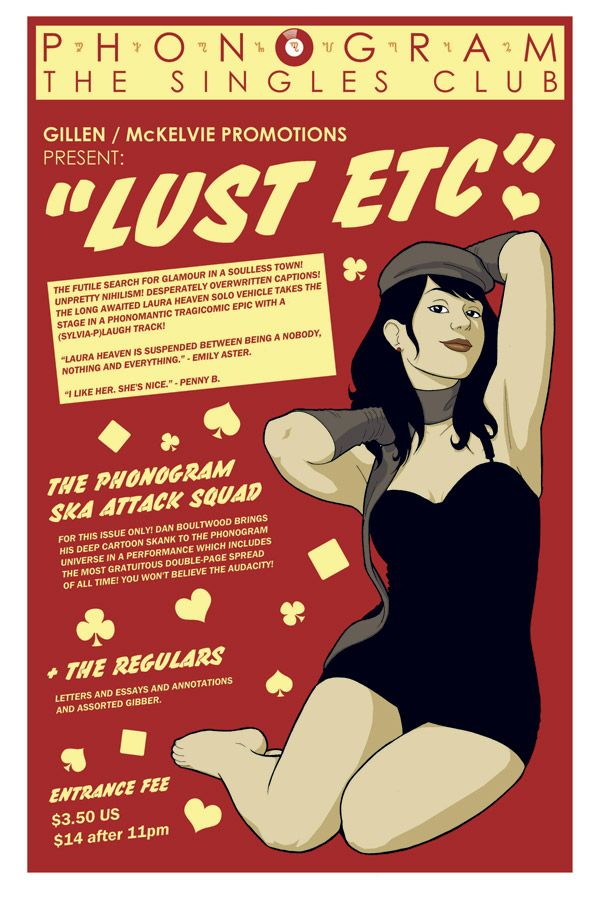Issue #5 of "Phonogram" might be the most challenging comic I've ever read, and in case there's any doubt, that's a good thing. For four issues this series, Gillen and McKelvie have made us laugh, and cry, and occasionally stare in wide-eyed reverence. Content in their ability to lead us down the garden path, team Phonogram now take this opportunity to drag us sideways through a hedge.
This issue focuses on Penny B's Long Blondes-quoting sidekick, Laura. This is the first time we see inside her head, and if you hadn't figured it out from her previous appearances, it's not a very nice place to be. From the first, openly unsettling scene to the last moment of magical euphoria, this is a comic that isn't afraid to make you feel some terrible things, both with and towards the lead character.
Although it takes a special kind of comic to get an emotional response in the first place, Phonogram is kicked up a notch by the sheer technique on display. Previous issues have been unafraid to play with the form, and in this one, the editorial voice gets in on the act. The series has always been thick with references, but this is the first time they've been footnoted. The impression is that Laura herself is keen to make sure we acknowledge her prowess -- even though she plainly isn't as smart as she'd like us to believe.
Clearly, then, this isn't a story about music in the conventional sense. Music is what Laura's identity hangs off, but unlike most other Phonomancers, it's not at the core of it. Her struggles to find herself parallel those of the series' other ice-queen, Emily Aster (Issue #3), and for that reason, the scene where she offers Laura a little insight is a nice counterpoint to Emily's own story (and a good reason to go and pre-order the trade if you missed it.)
An issue like this truly requires a creative team to be working in unison, and there's perhaps no better showcase in this series for McKelvie's strengths. Laura's body language explains a lot about the character, and her facial expressions are almost enough to tell the story on their own. There are few artists in comics who can pay this level of attention to a story, and few who can accomplish such feats of subtlety while still keeping each page as fresh, dynamic and attractive as the last.
After the intensity of the main story, a little lightness is helpfully provided in the form of a Ska-themed backup strip. Dan Boultwood's anarchic work is the perfect complement to that most relentlessly upbeat and brash of musical genres, which the story translates it well. If, like me, you consider ska the musical equivalent of scabies, you can point to this strip and say "this is why." If, on the other hand, you actually like ska, you can point to this strip and say "this is why." Fairer than that, I cannot be.
With such negativity surrounding the main story, it's hard to love this issue like the others in the series, but that's largely because "Phonogram" has set such lofty standards for itself. The fact that my main criticism of the issue concerns how it made me feel is, in truth, a celebration of its quality -- unlike far too many comics, the one thing it didn't leave me feeling was bored.

